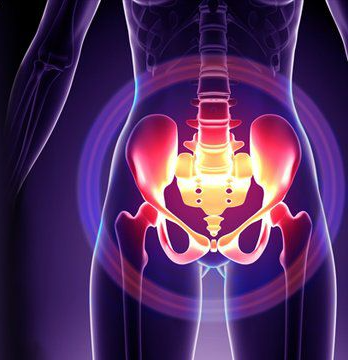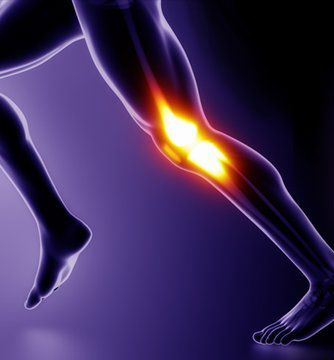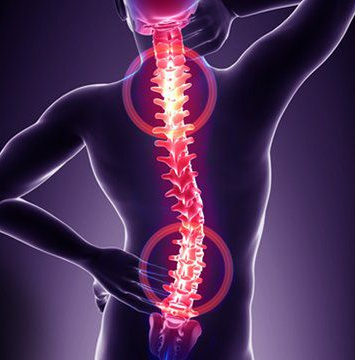Pelvic Health
Women’s Pelvic Health Physiotherapy
Pelvic floor dysfunction can be a contributory factor to women’s health in many ways. Therefore, we provide specialist pelvic physiotherapy to assess and treat pelvic organ prolapse, urinary incontinence, bowel constipation and dysfunction, pelvic pain and specific ante-natal / post-natal concerns. Also, we assess and treat many of the symptoms related to physical changes during and after the menopause. We do this via our “Well woman screening” and “Mum MOT”. The initial consultation and follow up treatments at Rachel Disley Physiotherapy are all of similar time lengths so we can adjust, progress and maximise every aspect of your treatment at each session. We will work to make every treatment and training session as efficient as possible. Every assessment will identify your main concerns and the most efficient treatment to achieve your individual goals.
Our complete physiotherapy approach is to combine specialist treatment of pelvic floor dysfunction with mainstream musculoskeletal physiotherapy practice. We believe that everyone deserves the professional opinion of a specialist pelvic health physiotherapist that sets goals that are specific to you.
- Bladder
- Bowel
- Pelvic Pain
- Prolapse
- Menopause
- Preganancy
Your Pelvic Physiotherapy Initial Consultation:
At the initial assessment, I will ask you to describe your symptoms, how long and how they are affecting you. If you don't experience any symptoms, don't worry as a pelvic health/lifestyle assessment can be a useful screening for potential future problems and identify any lifestyle factors that can be adjusted to maximise your pelvic health throughout life eg prevent prolapse, constipation or incontinence.
I will ask you questions about your bladder, bowel, feeling of pelvic organ prolapse or pain. Also, I will ask about your medical history, pregnancy/gynaecology history and other surgical history. This will help to identify problem areas that will need attention during your physical assessment and treatment planning. I will ask you questions about your weekly schedule and the activities you like to do. Then activities can be identified that are important to you and what your individual goals are for the future.
The physical examination will involve a full assessment of your posture and breathing. Then we will look at how you move in your daily function and when you are active – lunging, bending, lifting, walking, running, jumping, etc. Finally, a physical examination in pelvic health can involve observation and/or an internal pelvic examination (vaginal/anal). Written consent and chaperoning will be discussed prior to any intimate examination as per the POGP and CSP guidelines. During this assessment we may use electromyography (Neurotrac Myoplus 4 and Microsoft Software 5.2) to get the best picture of your pelvic floor function at rest and during function. You will have the opportunity to discuss this process in more detail with me, and please feel free to ask questions.
Bladder Pelvic Health Physiotherapy
Urinary incontinence (UI) affects up to 50% of women, the majority of whom have stress urinary incontinence (SUI) (Markland et al., 2008). This involuntary leakage of urine during exertion (e.g., coughing, running, jumping). First line of best practice treatment for bladder incontinence includes physiotherapist-supervised pelvic floor muscle training to relax and/or strengthen the pelvic floor, bladder retraining/drilling to improve toileting habits and dietary advice. Pessary use can also be used alongside pelvic floor retraining.
Types of bladder symptoms treated:
- Urinary Urgency
- Urge Incontinence,
- Stress Incontinence,
- Mixed Incontinence – both urge and stress incontinence
- Persistent Bladder Pain/ Bladder Pain Syndrome
Pregnancy Pelvic Health Physiotherapy
Ante natal physiotherapy
To maximise your physical and mental health during pregnancy keeping active is helpful. 30 minutes of moderate exercise daily is recommended throughout pregnancy. Life, fatigue and changes to your body can get in the way of carrying out day to day activities. Therefore a check at each trimester of your pregnancy is recommended. Pelvic and Back pain, urinary leaking or urgency and bowel changes are common conditions that occur during pregnancy. Physiotherapy can help to restore a better posture and strength, relieve pain symptoms and improve urinary symptoms ready for childbirth and beyond.
- Pelvic Health Assessment
- Posture Assessment
- Low back and Hip Assessment
- Gait Assessment
- Core Muscle Assessment
- Treatment Plan and Goal Setting for Pregnancy and Beyond
Post natal physiotherapy
Before returning to exercise after your baby is born, you should visit a Women’s Health Physiotherapist to assess your pelvic floor function, abdominal muscle strength, posture and alignment.
Low impact exercise is recommended when breastfeeding, altered hormone levels and pelvic muscle and ligament changes following child birth (vaginal or caesarean section deliveries) can increase risk of injury during higher impact exercises.
In the early days you may be experiencing intense pain: following vaginal delivery you may feel sore and numb in that area and have difficulty using the toilet or activating your pelvic floor. Leakage/constipation are common. Following a C-section you may experience abdominal pain and weakness when lifting and moving positions.
All women will have weak abdominal muscles after pregnancy, and it is normal to have a gap (diastasis recti) for 6 weeks after delivery. This will be assessed and the best course of management and progress will be discussed. For many women, this gap is present for many months/years after childbirth and can go undiagnosed.
Post Natal Mum MOT/ Well Woman Screening
- Pelvic Health Assessment
- Low back and Hip Assessment
- Gait Assessment
- Core Muscle Assessment
- Liasing with local specialist Menopause GP/Gynaecologists/Colorectal Surgeons to maximise your health
- Treatment plan and Goal setting for return to all activities of your choice.
What our Clients Say

"A year and a half after having my daughter I was still experiencing back, hip and pelvic pain every day. I had been to a physio and chiropractor with some minor improvement but after a couple of days of regressing and being bed ridden with pain I researched local private physiotherapists who had experience in women’s health. Rachel's initial assessment was so thorough and she referred me on to a personal trainer straight away, advising the PT of exactly the kind of exercises I needed. I keep meeting Rachel regularly who checked in on my progress and showed me how to stretch/move properly. After a couple of months with Rachel I was pain free, and am still pain free 8 months on from my discharge. Rachel reassured me that if I have any further issues that she is still there for advice/help. 10/10, would 100% recommend. Thank you Rachel."
Hannah Pearce
Button
Pelvic health conditions we treat
Urinary Incontinence – Urgency, Urge Incontinence, Stress Incontinence, Mixed Incontinence
Bladder Pain Syndrome
Functional Constipation
Pelvic Pain
Post Natal Pelvic Floor Dysfunction
Pregnancy Related Pelvic Pain
Pregnancy Related Low Back Pain
Urogynaecology Surgery Prehab and Rehabilitation
Physio treatments used
-
Specialist Pelvic Floor Treatment
- Assessment
- Electromyography – PF Muscle Testing
- Exercise Therapy
- Release/Relaxation
-
Physiotherapy lead exercise
- APPI Clinical Pilates (Australian Physiotherapy and Pilates Institute)
- Ante/Post Natal Pilates
- Gym Based exercise programmes
- Return to sport programmes
- Physiotherapist led Yoga
-
Lifestyle Management Physiotherapy
- Dietary/Fluid Intake advice
- Toileting habit advice and planning
- Bladder Diary and Analysis
- Individualised Goal/Sport specific exercise programmes
Pricing
*Individual treatment plans will be discussed at the initial consultation, leading to specific goal setting to give you peace of mind.
For all areas of treatment bank transfer and credit/debit cards contactless payments are accepted.
Book a Consultation
Looking for a Physiotherapist in Penarth, or looking for some advice?
Book a consultation with us today to see how we can help.
USEFUL LINKS
COntaCt & LOCATION
Rachel Disley Physiotherapy
34 Robinswood Crescent
Penarth, CF64 3JF
All Rights Reserved | Rachel Disley Physio | Website by Webjewel Digital | Privacy Policy



